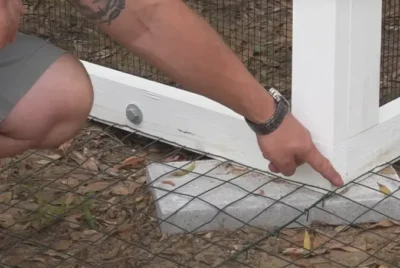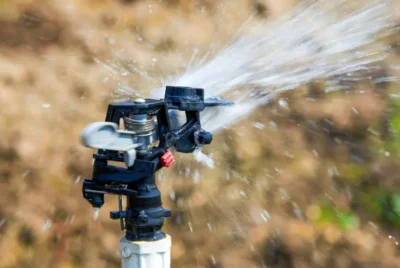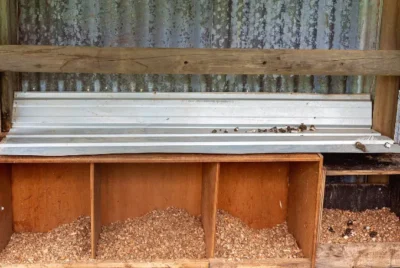Top Reason Why Your Chickens Need a Secure Coop for Safety
One of the most pressing issues that chicken keepers face is ensuring the safety and well-being of their beloved flock. Predators, harsh weather, diseases, and stress are all potential threats that can compromise the health and happiness of your chickens.
So, in this article, we’ll delve into the top reasons why your chickens need a secure coop for safety, addressing the pain points that every chicken keeper can relate to. Let’s explore how a secure coop can provide peace of mind and a haven for your cherished feathered companions.
1. Protection from Predators
One of the most significant reasons for a secure chicken coop is protection from predators. Chickens are vulnerable to predators, including foxes, hawks, raccoons, snakes, and even neighborhood dogs and cats.
These predators can attack at any time of day, not just at night. A secure coop with sturdy walls, a solid roof, and predator-proof latches can prevent tragic losses.
Common Predators in the Backyard
Chickens, by their nature, are vulnerable to various predators that can be commonly found in both rural and urban backyards. These include:
- Foxes: Known for their cunning and ability to breach unsecured enclosures.
- Hawks and Owls: Birds of prey that can snatch chickens during the day (hawks) or at night (owls).
- Raccoons: Notorious for their dexterity, raccoons can open simple latches and squeeze through small gaps.
- Dogs and Cats: Domestic animals can pose a threat, especially if they’re not used to being around poultry.
- Snakes: Larger snakes can prey on chicks or eggs.
- Rats: These pests not only eat eggs but can also harm young chicks and transmit diseases.
Read also: How To Fox-Proof and Raccoon-Resistant Your Chicken Coop
Features of a Predator-proof Coop
A predator-proof chicken coop needs several key features to ensure the safety of the chickens:
- Solid Construction: The coop should be built with sturdy materials that can withstand attempts by predators to chew or claw through. This includes using hardware cloth instead of chicken wire, as it is more durable and has smaller openings.
- Secure Locking Mechanisms: Raccoons, in particular, are adept at opening simple latches. Coops should have raccoon-proof locks or complex latching systems.
- Enclosed Run: An outdoor run attached to the coop should be fully enclosed, including overhead protection, to prevent attacks from aerial predators.
- Burial of Hardware Cloth: The perimeter of the coop and run should have hardware cloth buried at least 12 inches underground to prevent digging predators like foxes.
- Ventilation Without Vulnerability: Coops need good ventilation, but the vents should be secured with hardware cloth to prevent predators from gaining access.
- Regular Inspections and Maintenance: Regularly checking for gaps, weak spots, or damage and promptly repairing any issues helps maintain the coop’s integrity.
Read also: How to Predator-Proof Your Chicken Coop on a Budget

2. Shielding from Harsh Weather
Chickens, while hardy, can be vulnerable to extreme weather conditions. A secure coop provides essential protection:
- Heat: In hot weather, chickens can suffer from heat stress. A well-ventilated coop helps in maintaining a cooler environment. Adding shade structures or ensuring the coop is in a shaded area can also help.
- Cold: During winter, chickens need protection from the cold and wind. While they don’t require heated coops, they do need a structure that can keep out drafts and moisture while still allowing for adequate ventilation.
- Rain and Snow: A waterproof coop keeps chickens dry during rain and snow. Wet conditions can lead to health issues like respiratory infections or hypothermia.
- Wind: A sturdy coop provides shelter from strong winds, which can be particularly stressful and harmful to chickens.
3. Prevention of Disease and Parasites
A secure chicken coop is a frontline defense against diseases and parasites that can harm your flock. Proper sanitation and ventilation within the coop environment are essential for keeping chickens healthy. Regular cleaning routines are easier to implement in a well-designed coop, reducing the risk of diseases like coccidiosis and respiratory infections that thrive in unsanitary conditions.
Additionally, good coop maintenance helps control pests such as mites, lice, and rodents that can carry diseases and stress the flock. Furthermore, having a designated quarantine area within the coop can prevent the spread of illnesses among chickens, ensuring the overall well-being of your feathered friends.
Read also: How to Keep Flies Away from Chicken Coop: Tips and Tricks

4. Stress Reduction
Chickens are naturally prey animals, and stress can affect their health and productivity. A secure coop provides a haven that reduces stressors. Protection from predators and environmental threats makes chickens feel secure and at ease.
Plus, within the coop, they establish a pecking order, and a well-designed coop with adequate space minimizes disputes over social hierarchy. Moreover, the coop offers a consistent and predictable environment, where routines like feeding, roosting, and egg-laying remain stable. This stability contributes to lower stress levels among chickens, ultimately resulting in happier, healthier birds.
5. Controlling Roaming
While free-ranging chickens can be beneficial, they come with risks that a secure coop helps manage. Safety is paramount, as free-ranging chickens may wander onto roads or into other hazardous areas, potentially leading to accidents.
Chickens are also known to cause damage to gardens or neighboring properties, which can lead to conflicts with neighbors. Additionally, free-ranging chickens are more exposed to predator attacks.
A secure coop is a designated safe space for chickens to return to, particularly at night when they are most vulnerable to attacks. Furthermore, it encourages hens to lay eggs in nesting boxes, making egg collection more accessible and preventing hidden or lost eggs.
Read also: How to Build a Safe Chicken Run That’s 100% Safe

6. Better Egg Production
A secure coop is crucial in ensuring consistent and improved egg production. The coop provides a safe and comfortable environment for hens to lay their eggs peacefully. Nesting boxes within the coop encourage regular egg-laying, leading to higher egg yields.
Additionally, the coop safeguards eggs from predators that might steal them. A secure coop also allows for better monitoring of egg production, ensuring that each hen has the proper laying space and helping you collect fresh, healthy eggs regularly. In essence, a secure coop is a cornerstone of successful egg production, benefiting both you and your chickens.
7. Easier Management and Observation
A well-designed and secure chicken coop makes managing your flock significantly easier. It gives a centralized location to monitor and care for your chickens efficiently. You can easily access the coop for feeding, egg collection, and health checks.
This centralized setup allows you to observe your chickens closely, making it easier to detect any signs of illness or unusual behavior. Moreover, managing a flock within a secure coop minimizes the risk of chickens wandering off or getting lost, ensuring that all your birds are accounted for and well-cared for.
8. Safe Feeding and Roosting
A secure chicken coop ensures safe and stress-free feeding and roosting for your birds. Using the coop as a designated feeding area helps establish chicken routines. They learn to return to the coop at feeding times, making it easier for you to monitor their food intake and ensure that each bird gets its share. This controlled feeding environment also allows you to observe your chickens for potential health problems while they eat.
Additionally, the coop provides a comfortable and secure space for chickens to roost at night. Properly designed roosting areas with smooth, rounded perches ensure that chickens have a restful sleep, leading to healthier and happier birds.
Frequently Asked Question
What materials are best for deterring predators?
For deterring predators, use hardware cloth instead of chicken wire, as it’s much tougher and harder to break. Solid wood and metal locks also add extra security.
What size should my coop be for a flock of ten chickens?
Aim for at least 20-30 square feet of interior space for ten chickens, not including the space needed for nesting boxes and an outdoor run.
Can a secure coop also be mobile or does it need a permanent foundation?
A secure coop can be mobile. Just ensure it’s sturdy and has features like latches and predator-proofing that you’d find in a stationary coop.
How do I acclimate my chickens to a new coop?
To acclimate chickens to a new coop, confine them to the coop for several days before allowing them to range. This helps them recognize the coop as home.
By following these guidelines and addressing these common concerns, you can create a secure and happy environment for your chickens, ensuring their safety and your peace of mind.
Conclusion
In the world of backyard chicken keeping, ensuring the safety and well-being of your flock is paramount. We’ve explored the top reasons why your chickens need a secure coop for safety, addressing the common pain points that chicken keepers often face.
Ultimately, investing in a secure coop not only safeguards your feathered companions but also enriches your experience as a chicken enthusiast. It’s a sanctuary where safety meets serenity, ensuring that your chickens thrive and flourish in their cozy haven.




